Description Aceclofenac 100mg Tablets contain Aceclofenac, a non-steroidal anti-inflammatory drug (NSAID) used to relieve pain and reduce inflammation. It works by selectively inhibiting cyclooxygenase-2 (COX-2) enzymes, which decreases prostaglandin production, key mediators of pain and inflammation. This selective action minimizes gastrointestinal side effects compared to non-selective NSAIDs. Suitable for adults with acute or chronic pain conditions, these tablets provide effective relief for arthritis, injuries, or post-surgical inflammation when paired with rest and other therapies.
Ingredients Aceclofenac 100mg.
Drug Class Non-Steroidal Anti-Inflammatory Drug (NSAID) / COX-2 Selective Inhibitor.
Dosage Form Tablet (Pack size not specified; typically 10 or 30 tablets per strip).
Uses Aceclofenac 100mg Tablets are prescribed for:
- Relieving pain and inflammation in arthritis (osteoarthritis, rheumatoid arthritis).
- Managing post-surgical pain and swelling.
- Treating acute pain from injuries or dental procedures.
- Alleviating chronic pain in musculoskeletal conditions.
- Reducing menstrual pain and discomfort.
- Easing pain and stiffness in muscles, joints, backache, or sprains.
- Short-term pain relief after minor medical procedures.
Doctor’s Review Rheumatologists and pain specialists often choose Aceclofenac for its targeted anti-inflammatory action. As one physician notes: “Aceclofenac 100mg is a reliable NSAID for arthritis and acute pain, offering good efficacy with fewer stomach issues than older NSAIDs. Short-term use and monitoring for GI or heart risks ensure safe outcomes.”
Dosage (Follow physician’s instructions — typical guideline)
- Adults: 100mg once or twice daily, preferably with or after meals.
- Maximum: 200mg daily (100mg twice daily); use lowest effective dose.
- Elderly: Start with 100mg daily; monitor for side effects.
- Not for children unless specifically prescribed.
- Adjust in mild renal/hepatic impairment; avoid in severe cases.
In Case of Overdose Overdose may cause nausea, vomiting, abdominal pain, or gastrointestinal bleeding. Seek immediate medical attention. Severe cases may lead to dizziness, confusion, or renal issues. Treatment includes gastric lavage (if recent), activated charcoal, and supportive care (e.g., hydration, monitoring vital signs). Contact a poison center promptly.
Missed Dose Take as soon as remembered within 1-2 hours of the scheduled time. If close to the next dose, skip the missed one and resume your regular schedule. Do not double up to avoid risks like stomach irritation or bleeding. Consult your doctor if multiple doses are missed.
How to Use
- Swallow tablet whole with a glass of water, with or after food to reduce stomach upset.
- Take at consistent times daily, typically morning and/or evening.
- Do not crush, chew, or split tablets to maintain proper release.
- Combine with rest, physical therapy, or ice/heat for enhanced relief.
- Monitor for stomach pain or unusual symptoms—report to your doctor.
When Not to Use Avoid Aceclofenac if:
- Allergic to Aceclofenac, other NSAIDs (e.g., ibuprofen), or aspirin.
- Active or recent gastrointestinal bleeding, perforation, or peptic ulcer.
- Severe heart failure, uncontrolled hypertension, or post-CABG surgery.
- History of NSAID/aspirin-induced asthma or severe allergic reactions.
- Severe liver or kidney impairment.
- Third trimester of pregnancy or breastfeeding.
- Bleeding disorders or on anticoagulant therapy.
Side Effects Common:
- Stomach pain, nausea, vomiting.
- Diarrhea, constipation, indigestion.
- Headache, dizziness, vertigo.
- Skin rash, itching.
Uncommon / Severe (Stop and seek medical help):
- Gastrointestinal bleeding or ulcers (black stools, severe pain).
- Increased blood pressure, heart palpitations.
- Allergic reactions (swelling, breathing difficulty).
- Liver dysfunction (yellowing skin, dark urine).
Precautions & Warnings
- Screen for NSAID/aspirin allergies before starting.
- Monitor for GI bleeding or ulcers, especially in history of digestive issues.
- Risk of heart attack/stroke with prolonged use—watch for chest pain or weakness.
- Regular liver function tests advised; stop if enzymes rise significantly.
- Use cautiously in mild kidney disease; adjust dose as needed.
- Avoid in third trimester pregnancy or if trying to conceive (fertility impact).
- Elderly patients may need lower doses due to higher side effect risk.
Drug Interactions
- Lithium, diuretics (e.g., furosemide): Increased toxicity risk due to reduced clearance.
- Other NSAIDs/corticosteroids: Heightened GI bleeding/ulcer risk.
- ACE inhibitors/ARBs: Reduced antihypertensive effect; monitor BP.
- Anticoagulants (e.g., warfarin): Increased bleeding risk; check INR.
- Antidiabetics: Reduced blood sugar control—monitor glucose.
- Methotrexate: Elevated levels, increasing toxicity risk.
- Probenecid, sulfinpyrazone: May raise Aceclofenac levels.
Food Interactions
- Take with or after meals to minimize stomach irritation.
- Avoid excessive alcohol—heightens risk of GI bleeding and liver strain.
- Limit grapefruit juice; may increase Aceclofenac levels.
- Reduce caffeine (coffee, tea) to avoid amplifying side effects like jitteriness.
- Avoid spicy or fatty foods if they worsen GI symptoms.
- Maintain a balanced, fiber-rich diet to support digestion and health.
Storage/Disposal
- Store at room temperature (below 25°C), away from direct light and moisture.
- Keep in original packaging, tightly sealed, out of reach of children and pets.
- Do not use past expiration date; check package for date.
- Dispose via pharmacy take-back programs; do not flush or trash to prevent misuse.
Quick Tips
- Take with food or milk to protect your stomach.
- Stay hydrated to ease digestive side effects.
- Use sunscreen to counter rare photosensitivity.
- Report black stools or severe abdominal pain immediately.
- Avoid over-the-counter NSAIDs unless approved by your doctor.
- Schedule regular BP and liver checks during treatment.
Disclaimer This information is provided for educational purposes only and does not replace medical advice. Use only under the supervision of a licensed physician. Do not self-medicate.

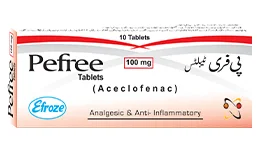
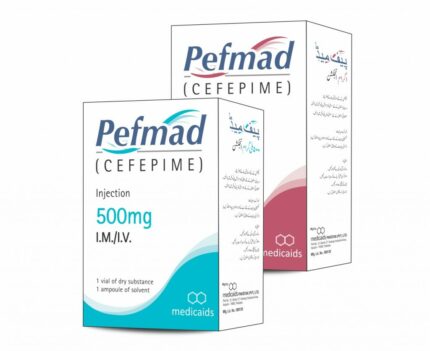
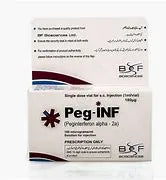
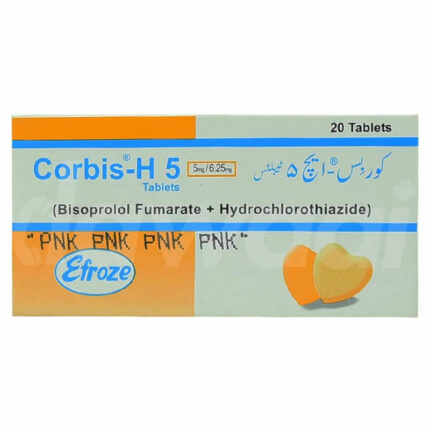

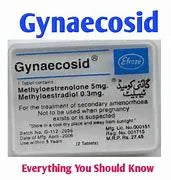
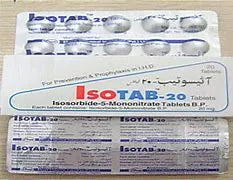

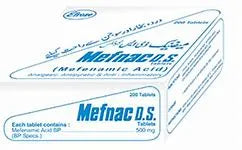
Reviews
There are no reviews yet.